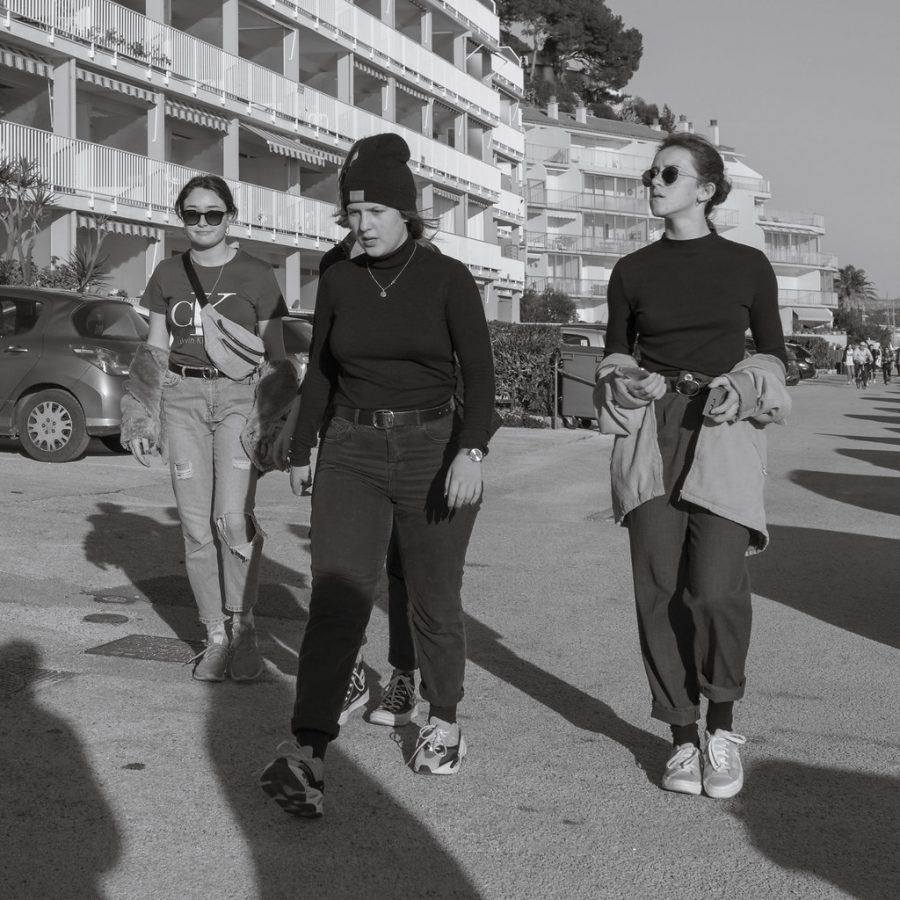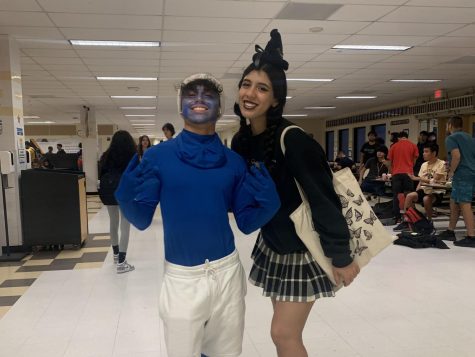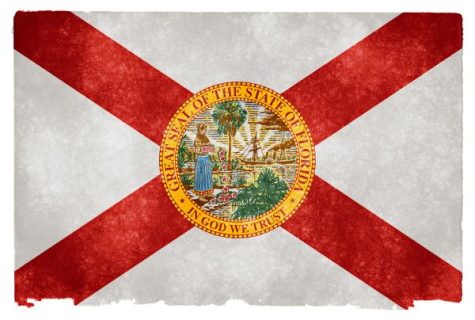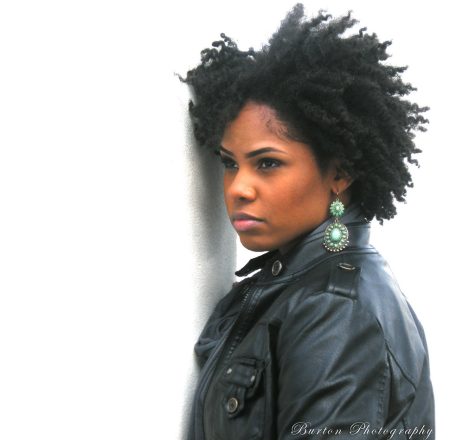How I learned to love being a teenage girl
Celebrate Women’s History Month by embracing your true self.
I was browsing for new shoes in Journey’s at the mall, exhausted after a long day, and former Disney star Olivia Rodrigo’s first single “Driver’s License” piped in through the speakers. It starts off quiet, the piano mimicking the sound of a blinker of a car clicking, then Rodrigo’s soft yet present voice joins in with the first simple lyric.
For a week, I’d purposely avoided the song because it was too popular and certainly too obvious. I knew it was silly, but if I showed any indication that I liked it, I would be labeled as basic and cringe-worthy.
Yet there I was hearing it against my will, completely frozen and pulled in. Something about it struck me so much that I wanted to cry. There was something so touching and honest about an actual 17-year-old girl writing a raw song about her actual experience that every teenage girl could probably relate to.
Not that this is a new concept–hundreds of songs about heartbreak have been written before, yet teenage girls still fuel the fire of them. I find the nature of this concept–teenage girls screaming to a “basic” pop song about a boy, while eating ice cream, dramatically sobbing, and all the other stereotypical reactions–to be beautiful. It’s something I used to hate but now have begun to love because there is something so simple and brave in the teenage girl experience and it should be embraced instead of rejected.
Growing up, I never allowed myself to fully enjoy pop music, boy bands, romantic comedies, or anything of that nature, simply because they were seen as too “girly.” I didn’t know exactly why that was inherently bad, but I understood others thought these things would make you annoying, weak and shallow.
It has been a long process to unlearn a lot of these mindsets. But as I have gotten older, I have become more aware of the fact that no matter what I do, I will be questioned for it, simply because I am a girl.
When I was 13 I decided I wanted to play drums, not to make a statement or because I was trying too hard, but simply because I was interested in it. People would question my intentions or were surprised by my choice of instrument since it is uncommon for girls. People would compliment me by saying, “you’re a good girl drummer,” while all the guy drummers I knew were simply referred to as “a good drummer.” This is just one example of how teenage girls must prove themselves in ways that their male counterparts don’t have to.
Earlier this year, when Rodrigo released “Driver’s License,” it held the record of the most Spotify streams in a week. I had yet to even listen to the song, and I already saw a trend circulating on social media that was bashing the 17-year-old for trying too hard and accusing her of buying fake streams.
This is nothing new–when 17-year-old Billie Eillish was nominated for five Grammys, she feared winning because of the hate she knew she would receive. Taylor Swift has dabbled in country, pop and alternative/indie, yet people have still found ways to judge everything she does, attacking her for constantly writing songs about her exes. These are just the few examples of why not only society hates to see successful young women, but they hate the narrative of their personal experiences.
There are many tropes in pop culture about what a female character should be like. I find that usually a strong female character is often stripped of her feminine qualities. Take action movies for example: female superheroes are “cool” because they’re tough, and basically the only feminine quality about them is their revealing clothes or love interest. Although these things are not inherently bad, they are used as a weapon to sexualize them.
It is very subtle but movies like these leave a bad taste in my mouth for how women are represented. This is why it is important to recognize who the storyteller is. I have found that films directed or written by females resonate with me more because girls are more accurately represented in a way that is celebrated. Not to say that a powerful female character cannot be written by a man, because it could. As long as that writer has listened to a woman’s actual experience and isn’t writing about his own fantasies of what a woman should be like, a strong female character can be written by anybody.
One film that beautifully captures the teenage girl experience and has opened my eyes to embracing my own femininity is “Little Women.” The film captures growing up as a teenage girl surrounded by sisterly figures beautifully, in a way I had never seen before. There’s a scene where Laurie and his grandfather and alone in their house. It is quiet, dimly lit, and something about the room feels stiff. A moment later, the four March sisters come prancing in. Just by their presence the room is lifted up: Laurie stands a little taller, and a fresh lively spirit brings an element of joy to everyone.
This scene struck me deeply. It reminded me of something I had seen before, all my life. Growing up with five aunts who are very close, there is something magical that happens when you watch them all get together. They are loud, fill the room with laughter and make you feel alive. When I was little and would attend any family function, I would always want to be in the same room as them. I was captivated by their freedom– their “indoor voices” roared so loud it shook the walls, the way they talked was powerful even though I most of the time didn’t understand what they were talking about– all I wanted to do was watch. A woman’s presence adds a layer to a room that is uplifting and gentle, no matter what it looks like.
There are also scenes in the “Little Women” that just show the sisters hanging out together, not doing anything spectacularly entertaining, simply braiding each other’s hair or reading books on a beach. The way their relationship was portrayed felt so pure to me, and it made me emotional because I’ve never seen a group of girls portrayed in such a way before. The way they slump over each other while sitting around and talking, and the way they tease and gossip about boys is something that resonated with me so much, and reminded me of my relationship with my cousins growing up.
The March sisters fought, but it wasn’t seen as petty or catty like it is in almost every other film I’ve seen. Their fights may seem silly, but their feelings and anger were still valid. They are not seen as one dimensional. The film acknowledged all of the complexities of being a teenage girl, without offending. It reassured me of so many things that I battled with myself. That I could still be influential and powerful yet still feel what I feel deeply, and that embracing my femininity could actually be something beautiful instead of embarrassing.
Jo is the character that helped me realize this the most. She was tomboyish, and believed that if she never embraced girly things, it would prove to people she was worth being listened to. She thought falling in love was exactly what people expected her to do, therefore avoided it. With that, she eventually realized she had been numbing a part of herself that desired to find love. In the end, she realized that she can admit her true feelings for a man, and still be more than just that.
Over my high school years I’ve definitely had to do some introspection within myself, and question my reasoning why I dislike certain things, even certain girls. Whether it is dyeing my own hair pink in rebellion against myself, or if it is casually wearing dresses when I’d usually not feel comfortable to, it took some time to overcome misogynistic mindsets buried deep in me. Not only am I now embracing my own feminine qualities, but I am able to wholeheartedly praise and support other women without a trace of jealousy or competition.
I have learned all this from the women in my life, whether it is an influential director or close teacher, their presence has moved my heart and caused me to change. Therefore, it is crucial that not only that their voices are tolerated but that they are uplifted, admired, and protected, for it has the power to free others to amplify their own voices as well.










Olivia Philipson • Apr 23, 2021 at 1:24 pm
So glad to see Mackenzie holding down the fort at Paw Prints. She has such a gift. What a beautiful article
Lois Donovan • Mar 3, 2021 at 11:02 am
Very well written. You have a talent for writing among other things. Hope to see you soon.
Lois Donovan • Mar 3, 2021 at 12:46 am
Love those drums Mackenzie!!
Yoel • Mar 1, 2021 at 12:10 pm
yassss. so beautiful. i appreciate you sharing your story to the world. i love it so much and its needed. such an interesting perspective to the twenty-first century teenage girl and sharing what living in this world looks and feels like for you.
– yo